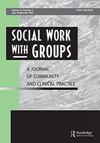Cognitive remediation group therapy compared to mutual aid group therapy for people aging with HIV-associated neurocognitive disorder: randomized, controlled trial
引用次数: 3
Abstract
ABSTRACT Cognitive impairment is an important comorbidity for people aging with HIV, and group therapy may ameliorate the associated anxiety and stress. Combination psychosocial interventions may have better outcomes than single technique approaches. A pilot, parallel design, two-arm trial randomized people aging with HIV-Associated Neurocognitive Disorder (HAND) to Cognitive Remediation Group Therapy (Experimental; combination of brain training activities and mindfulness-based stress reduction) or Mutual Aid Group Therapy (Control). Outcomes were feasibility, acceptability, fidelity, and exploratory measures of anxiety, stress, coping, and use of mindfulness and brain training activities. Among 40 contacted participants, 15 replied, 12 recruited, and 10 completed. Assessors confirmed intervention delivery with satisfactory fidelity. The novel arm had statistically significant improvements in stress and mindfulness use compared to control, and brain training and mindfulness use sustained at 3-month follow-up. Requiring a HAND diagnosis made recruitment challenging. Further research should broaden eligibility to people aging with HIV and cognitive challenges.认知修复组治疗与互助组治疗对老年hiv相关神经认知障碍患者的比较:随机对照试验
认知障碍是老年HIV感染者的重要合并症,团体治疗可以改善相关的焦虑和压力。综合社会心理干预可能比单一技术方法有更好的结果。一项试点、平行设计、两组试验将老年hiv相关神经认知障碍(HAND)患者随机分配到认知修复组治疗(Experimental;结合大脑训练活动和以正念为基础的减压)或互助团体治疗(控制)。结果是焦虑、压力、应对、正念和大脑训练活动的可行性、可接受性、保真度和探索性测量。在联系的40名参与者中,15人回复,12人招募,10人完成。评估人员确认干预交付具有令人满意的保真度。与对照组相比,新手臂在压力和正念使用方面有统计学上的显著改善,大脑训练和正念使用持续了3个月的随访。需要HAND诊断使得招聘具有挑战性。进一步的研究应将适用范围扩大到老年艾滋病毒感染者和认知障碍患者。
本文章由计算机程序翻译,如有差异,请以英文原文为准。
求助全文
约1分钟内获得全文
求助全文
来源期刊

Social Work with Groups
Social Sciences-Social Sciences (miscellaneous)
CiteScore
1.30
自引率
0.00%
发文量
22
期刊介绍:
Social Work with Groups is a unique quarterly journal of community and clinical practice, and an important reference publication for those in the social work profession who value and seek to understand the small group. The journal addresses the issues of group work in psychiatric, rehabilitative, and multipurpose social work and social service agencies; crisis theory and group work; the use of group programs in clinical and community practice; and basic group competencies for all social work professionals. The contributions reflect a sophisticated knowledge of the use of the group as a learning medium and a highly developed understanding of instructional technology in the teaching of social group work knowledge and skills.
 求助内容:
求助内容: 应助结果提醒方式:
应助结果提醒方式:


